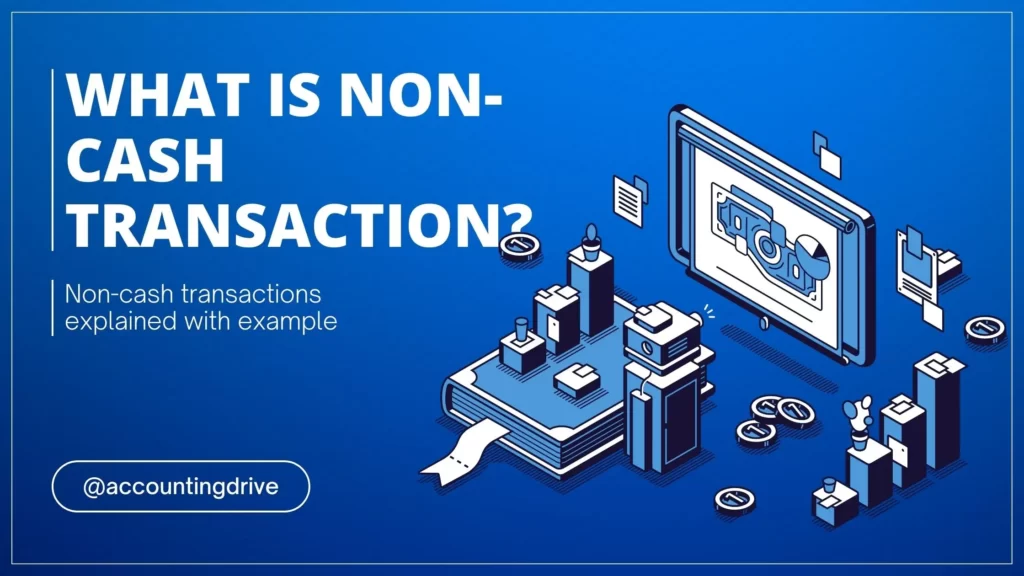Puzzled! What is non-cash transaction? This article helps you to understand the basic concept of non-cash transaction, what is it? What type of transactions lies in this type?
Here you go. Let’s start our topic.
What Is Non-Cash Transaction?
In This Article
ToggleA business transaction (selling or buying a thing) that does not involve cash is called non-cash transaction. It is an economic event that occurs when a company do a financing related transactions without being cash engaged into it. In these types of transactions, sometimes the company writes a promissory note instead of using cash.
- Does not involve cash
- An economic event
- A business transaction
- Includes Depreciation, stock issuance etc.
Example
According to GASB (Governmental Accounting Standard Board) 9, paragraph 37, the following are the examples of non-cash transactions:
- Purchase of asset (property, plant or equipment) by issuing stock convertible bonds
- Exchange of one property for other property
- Increase or decrease in the fair market value of investments
- Expire debt in exchange of issuing additional debt.
- Purchase of an asset by having capital lease contract.
- Expire debt in exchange of selling a fixed asset.
Explanation
Non-cash transactions- the term in itself is quite indicative that it is the opposite of cash transaction. In business there are numerous number of transactions. In which there may not be a movement in terms of cash or May the movement takes place in later time or no movement at all. So, to give a more accurate picture to their current financial condition, non-cash transaction effects are also added.
- Purchase of asset by issuing stock convertible bonds. In other words, instead of converting bonds into cash and then buying assets. A company buys an asset through issuing bonds. For example, purchase of land and building through issuance of 250,000 shares of common bond.
- Exchange of one property for other property: In this type, instead of selling a property and then purchasing a property. The company exchange its property with another property. For instance, Exchange land in California, for land in Sydney.
- Depreciation: Depreciation is recorded on a fixed asset to calculate the reduction in the value of asset over a time. Depreciation is considered as non-cash expense. When a company buys a fixed asset it is recorded in the company’s balance sheet. Every year the value of fixed asset is reduced because it is being used. But this expense is non-cash because company does not pay for it. For instance, a company bought computer for 100,000, its useful life is 3 years and it will be depreciated by 33%. Company doesn’t has to pay for this expense, rather it reduces the value of asset.
Key Points
- Noncash transactions does not involve cash in it.
- Cash transactions are immediate payments and involve cash.
- Non cash transactions include depreciation, exchange of property from other property or issue stocks for purchasing of an item.

